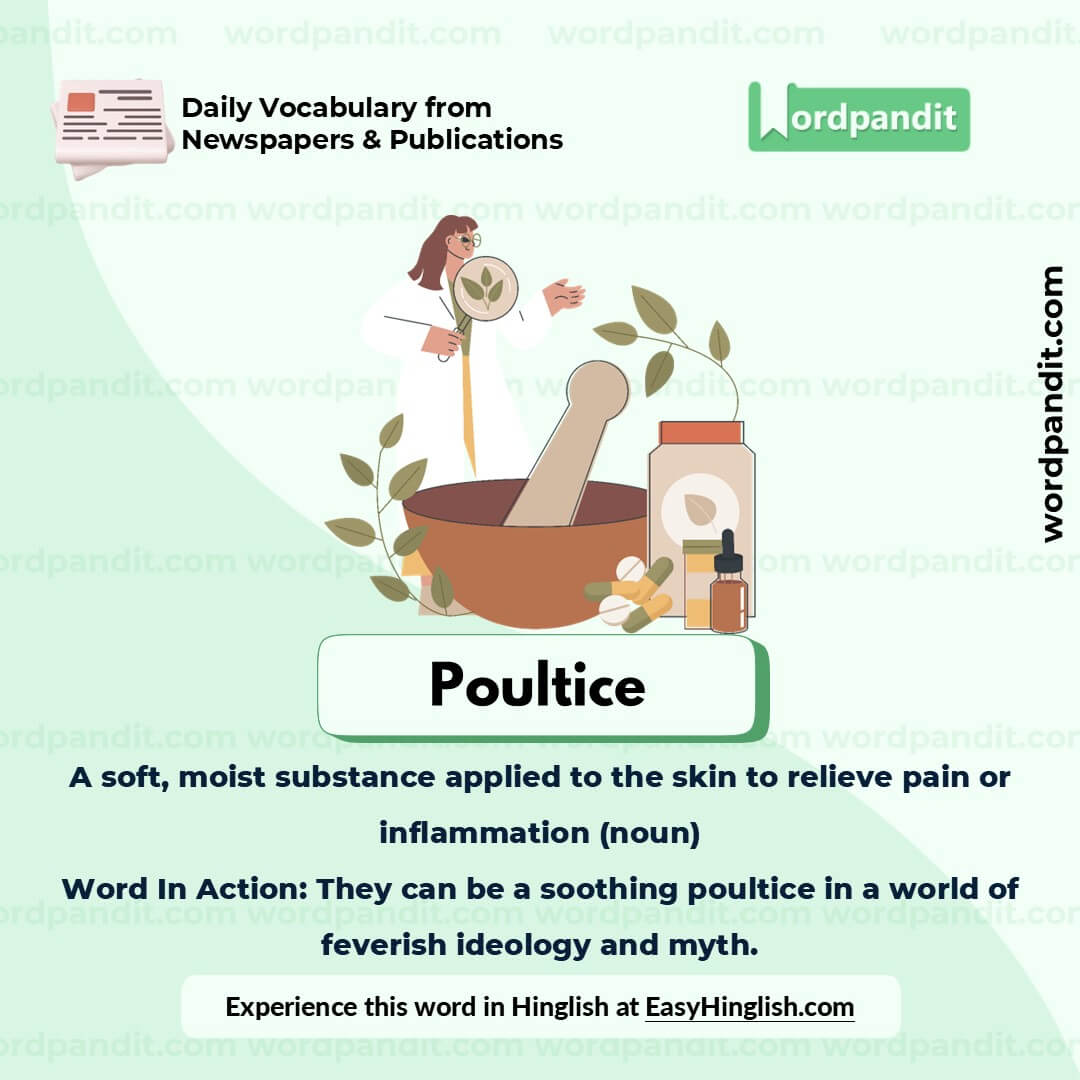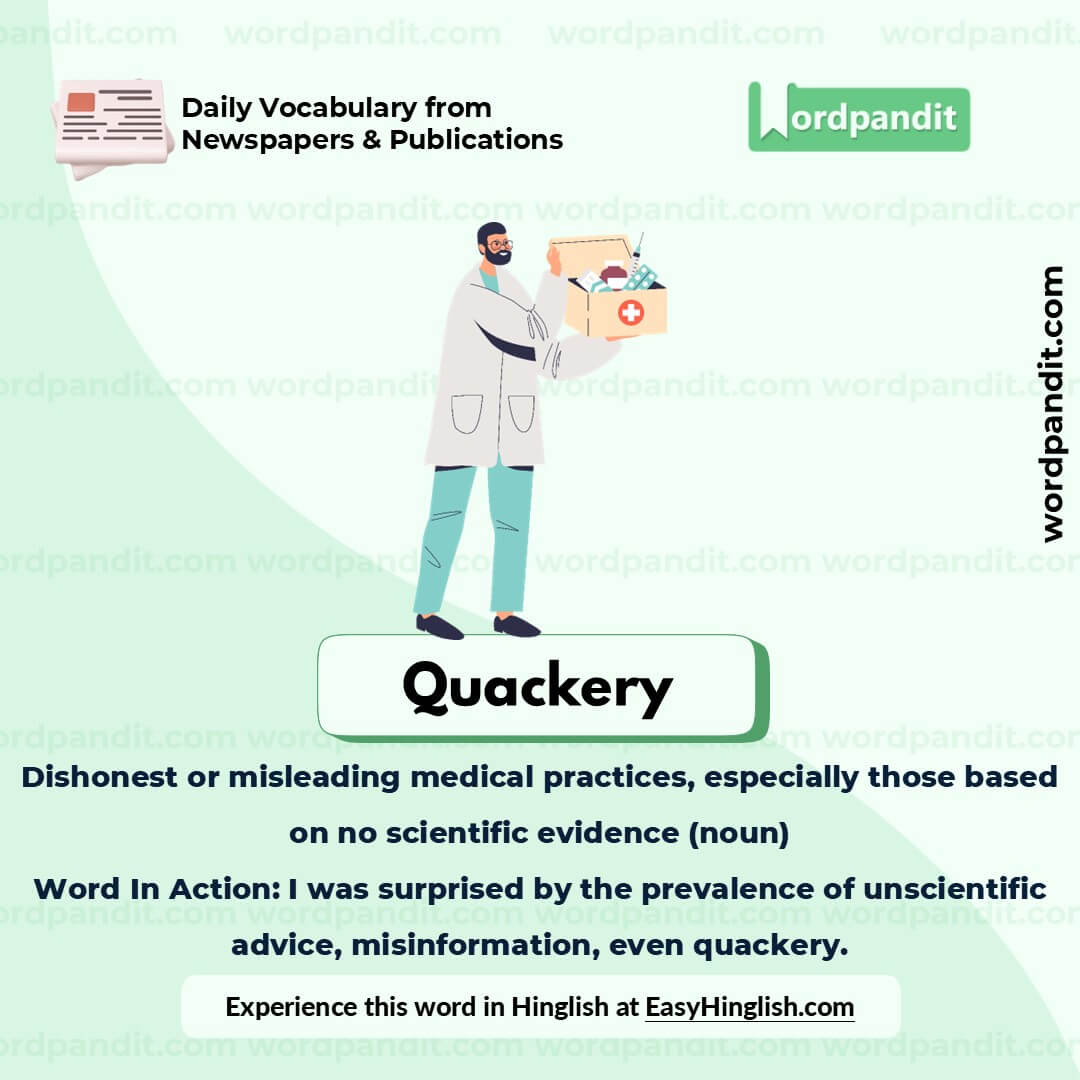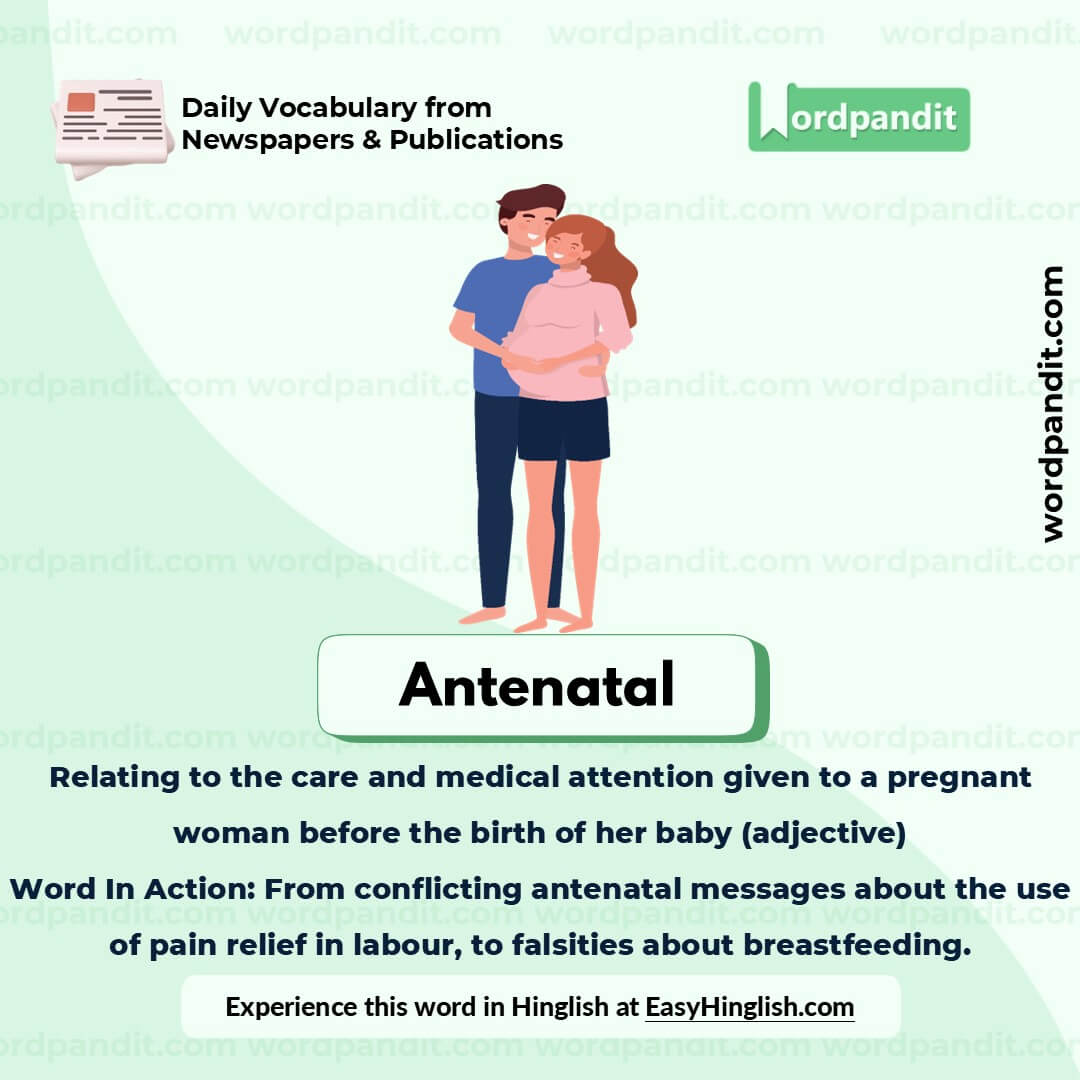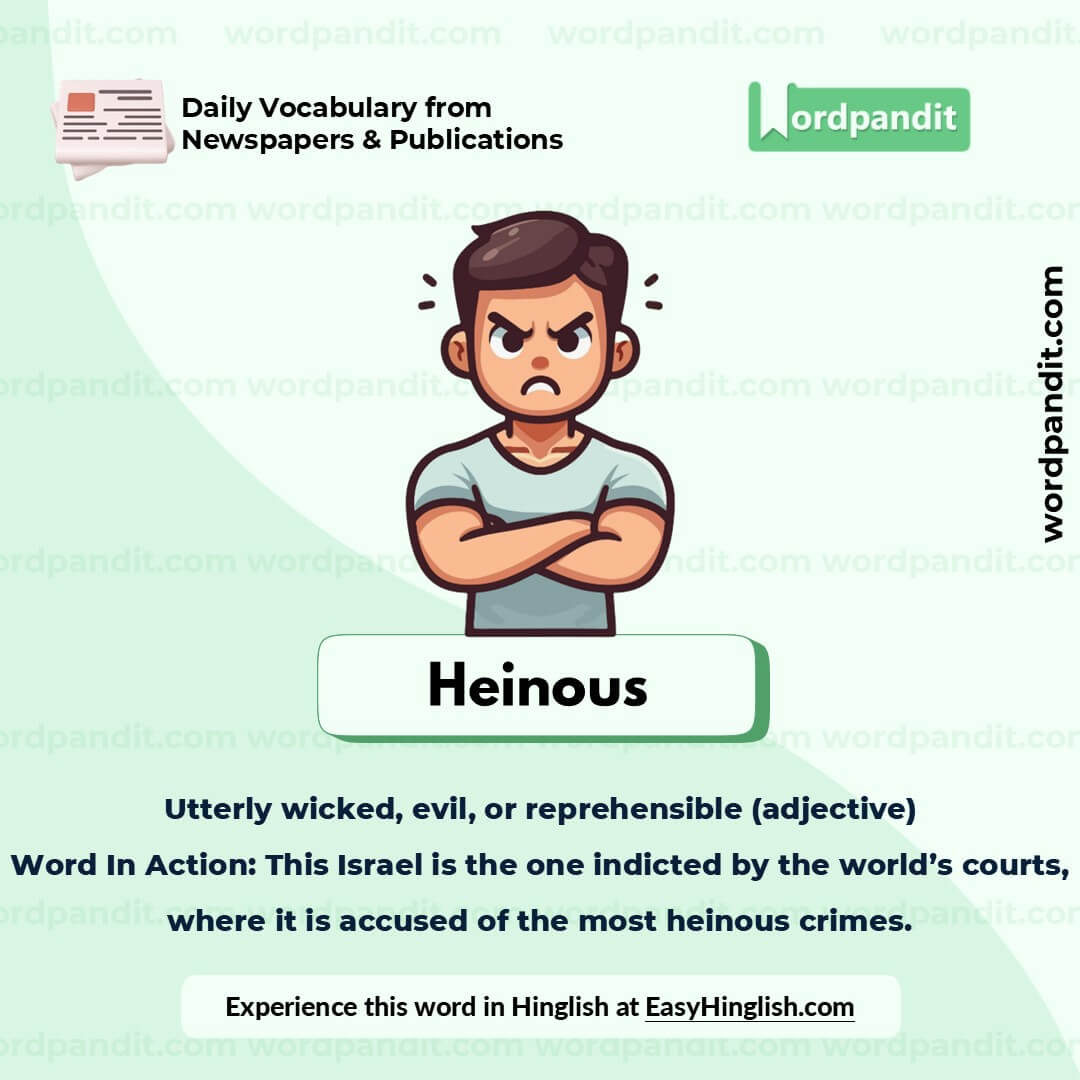Daily Vocabulary from International Newspapers and Publications
Expand Your Vocabulary with Wordpandit’s Global Vocabulary Hub
At Wordpandit, we are committed to helping you develop a truly global vocabulary by drawing from some of the most respected international publications. This section is designed to keep you ahead of the curve by introducing you to words that define global conversations and trends.
The Power of Global Sources
To help you think and communicate on a global scale, we curate vocabulary from renowned international sources, such as:
- The New York Times
- The Washington Post
- BBC
- The Guardian
- The Economist
- Scientific American
- Psychology Today
- And many more...
Stay Global, Stay Competitive
Our daily updates from international publications ensure you are consistently exposed to new words that reflect global news and developments, making sure your vocabulary is not only current but also globally relevant.
Enhance Your Global Perspective
Whether you’re preparing for international exams, aiming to excel in global business communication, or want to enhance your language skills for personal growth, Wordpandit offers the resources you need to thrive in a global context.
Effective Learning, Global Reach
Our learning methodology combines global examples, memory aids, and interactive activities, allowing you to internalize new words effectively and apply them in real-world scenarios.
Begin Your Global Vocabulary Journey Now!
Why Choose Wordpandit?
Practical Learning: Focus on words you'll actually encounter in real-world reading, enhancing your comprehension and communication skills.
Diverse Content: From current affairs to scientific breakthroughs, our varied sources expose you to vocabulary across multiple domains.
Effortless Integration: Make Wordpandit a part of your daily routine. Just a few minutes each day can significantly boost your lexicon over time.
Your Path to Vocabulary Mastery
- Visit our Daily Vocabulary section regularly
- Explore new words and their usage in context
- Practice incorporating these words into your own writing and speech
- Track your progress as your vocabulary expands
Start Your Journey Today
Embark on your vocabulary enhancement journey with Wordpandit. By consistently engaging with our daily posts, you'll build a robust vocabulary that serves you well in academic, professional, and personal contexts.
Remember, a word a day keeps linguistic limitations at bay. Make Wordpandit your daily companion in the quest for vocabulary excellence!
WORD-1: Poultice
Context:
"They can be a soothing poultice in a world of feverish ideology and myth." - The Guardian
Explanatory Paragraph:
A poultice is a soft, moist mass of material, often made from plants or flour, applied to the body to relieve soreness and inflammation. It’s also used metaphorically, like in this context, to refer to something that brings comfort or soothes in difficult situations.
Meaning: A soft, moist substance applied to the skin to relieve pain or inflammation (noun)
Pronunciation: POHL-tis
Difficulty Level: ⭐⭐ (Intermediate)
Etymology: From Latin pultes, meaning 'porridge', through Old French
Synonyms & Antonyms:
Synonyms: compress, dressing, plaster
Antonyms: irritant
Usage Examples:
- The nurse applied a warm poultice to the injured area.
- He used a poultice of herbs to relieve the swelling on his ankle.
Cultural Reference:
In traditional medicine, a poultice was often used as a home remedy for various ailments, such as sore muscles or cuts.
Think About It:
What modern alternatives do we have to poultices today in medicine?
Quick Activity:
Research a type of plant that has historically been used to create a poultice, and describe its medicinal properties.
Memory Tip:
Think of "poultice" as something that "pulls" pain away, helping to heal.
Real-World Application:
Poultices are still used in herbal medicine today for their healing properties, and the term is often used metaphorically for anything that brings relief.
WORD-2: Quackery
Context:
"I was surprised by the prevalence of unscientific advice, misinformation, even quackery." - The Guardian
Explanatory Paragraph:
Quackery refers to the promotion of fraudulent or ignorant medical practices. The term is used to describe people who falsely claim to have medical skills or knowledge.
Meaning: Dishonest or misleading medical practices, especially those based on no scientific evidence (noun)
Pronunciation: KWAK-uh-ree
Difficulty Level: ⭐⭐ (Intermediate)
Etymology: From the Dutch word quacksalver, meaning a person who sells fake remedies
Synonyms & Antonyms:
Synonyms: charlatanism, sham, fraud
Antonyms: authenticity, legitimate practice
Usage Examples:
- The doctor warned his patients to stay away from health products based on quackery.
- Many people were duped by the quackery of online health gurus.
Cultural Reference:
The term "quackery" became widely recognized in the 19th century when unregulated medicine thrived, leading to the sale of many false remedies.
Think About It:
How can we protect ourselves from quackery in the digital age where misinformation is so easily spread?
Quick Activity:
List two common health myths that have been debunked by science, but still persist due to quackery.
Memory Tip:
Remember "quackery" by associating it with a quack, someone making false medical claims.
Real-World Application:
Being aware of quackery helps people make informed health decisions and avoid falling victim to unproven or harmful treatments.
WORD-3: Antenatal
Context:
"From conflicting antenatal messages about the use of pain relief in labour, to falsities about breastfeeding." - The Guardian
Explanatory Paragraph:
The term antenatal refers to the period before birth, also known as the prenatal period. It is a time when mothers receive medical advice and care to ensure the health of both the baby and mother.
Meaning: Relating to the care and medical attention given to a pregnant woman before the birth of her baby (adjective)
Pronunciation: an-tee-NAY-tuhl
Difficulty Level: ⭐⭐ (Intermediate)
Etymology: From Latin ante meaning "before" and natalis meaning "pertaining to birth"
Synonyms & Antonyms:
Synonyms: prenatal, pre-birth
Antonyms: postnatal, postpartum
Usage Examples:
- She attended antenatal classes to prepare for childbirth.
- The doctor monitored the baby's development during her antenatal check-ups.
Cultural Reference:
Antenatal care is a vital part of modern medicine, helping to reduce maternal and infant mortality rates globally.
Think About It:
Why is antenatal care important for both the mother and the baby?
Quick Activity:
Research two common antenatal recommendations for expectant mothers and explain why they are important.
Memory Tip:
Remember "antenatal" by breaking it down: "ante" means before, and "natal" relates to birth.
Real-World Application:
Antenatal care is a key component of public health programs around the world, ensuring that mothers and babies receive essential medical attention before birth.
WORD-4: Cliched
Context:
"The cliched concept of 'mum/baby brain' has its roots in the 19th-century idea that women were intellectually enfeebled by their ability to bear children." - The Guardian
Explanatory Paragraph:
The word cliched describes something that is overused and lacks originality. A cliché is a phrase or idea that has become predictable or boring due to excessive repetition.
Meaning: Something unoriginal or predictable due to overuse (adjective)
Pronunciation: klee-SHAYD
Difficulty Level: ⭐⭐ (Intermediate)
Etymology: From French cliché, meaning a stereotype or a phrase that has been repeated too often
Synonyms & Antonyms:
Synonyms: stereotyped, hackneyed, overused
Antonyms: original, fresh, unique
Usage Examples:
- His cliched response to the problem didn't offer any real solutions.
- The movie was full of cliched dialogue that made it predictable.
Cultural Reference:
The concept of "cliched" language or ideas is common in both literature and film criticism, where originality is highly valued.
Think About It:
Why do some ideas or phrases become cliched over time, and how can we avoid them in communication?
Quick Activity:
Identify three cliched phrases you've heard recently and suggest more original ways to express those ideas.
Memory Tip:
Remember "cliched" by thinking of a phrase that is like a "click" on repeat—it keeps happening over and over.
Real-World Application:
Recognizing cliched language can improve your communication skills by encouraging more creative and original expression.
WORD-5: Heinous
Context:
"This Israel is the one indicted by the world’s courts, where it is accused of the most heinous crimes." - The Guardian
Explanatory Paragraph:
Heinous refers to acts that are shockingly wicked or evil. It is often used to describe particularly terrible crimes or actions that cause moral outrage.
Meaning: Utterly wicked, evil, or reprehensible (adjective)
Pronunciation: HAY-nuhs
Difficulty Level: ⭐⭐⭐ (Advanced)
Etymology: From Old French hainos meaning "hateful" or "odious"
Synonyms & Antonyms:
Synonyms: atrocious, monstrous, nefarious, vile
Antonyms: admirable, honorable, noble
Usage Examples:
- The heinous nature of the crime shocked the entire community.
- He was convicted for committing a series of heinous acts during the war.
Cultural Reference:
The term "heinous" is often used in legal contexts to describe the worst kinds of crimes, including war crimes and acts of terrorism.
Think About It:
What characteristics make a crime or action heinous, and how do societies decide what is morally unacceptable?
Quick Activity:
Write about a historical event that involved heinous actions, and reflect on how it impacted society's sense of justice.
Memory Tip:
Think of "heinous" as "hate us" to remember it describes something hateful and morally reprehensible.
Real-World Application:
The word "heinous" is often used in legal settings and journalism to describe the most serious and morally egregious acts.


















